Olulise tähtsusega riikliku küsimuse "Spordi tuleviku plaan: kuidas tuua medalid ja panna lapsed liikuma" arutelu
Istung: XV Riigikogu, V istungjärk, täiskogu istung
Kuupäev: 2025-02-20 12:06
Sõnavõtte kokku: 134
Koosseis: 15
Päevakorra kestus: 3h 27m
AI kokkuvõtted: 134/134 Sõnavõtud (100.0%)
Analysis: Structured Analysis
Poliitikute Kõneaeg
Poliitikud
Analüüs
Kokkuvõte
Esitletakse Eesti spordi tuleviku strateegiad, keskendutakse noorte liikumisharjumuste suurendamisele ja medalivõitude kasvatamisele. Päevakorra jooksul toimusid kõned nelja ettekandja poolt: Eesti Olümpiakomitee president Kersti Kaljulaid, Eesti 200 fraktsiooni liige Tanel Tein, Arenguseire Keskuse uuringute juht Uku Varblane ning haridus- ja teadusminister Kristina Kallas. Iga ettekandja pidi valmima 15-minutiliseks ning selle järel 20-minutiline küsimuste-vastuste voor. Pärast ettekandeid alustati läbirääkimistega fraktsioonide esindajatest ning keskmes oli olulise tähtsusega riiklik küsimus spordi tuleviku arendamisest – kuidas tuua medalid ja panna lapsed liikuma. Arutelus tõstatati finantseerimise küsimused, eraraha kaasamise võimalused ja riigi roll spordi infrastruktuuri ning treenerite palgasüsteemi arendamisel. Juhtivaks teemaks sai ka hasartmängumaksu rakendamise potentsiaal spordi rahastamisel ning riigi võimenduse kasutamine erasektori kaasamisel. Lõpuks kutsuti kuulajaid nahku viskava spordielu poole – suureneva spordi rolli, tervise ja majanduse sidususte ning erarahastuse puudutavate ideede ettetoomiseks ning riigi ja erasektori koostöö tugevdamiseks.
Tehtud otsused 1
Istungi pikendamine kuni kell 14:00 kinnitati. Lisaks otsustati, et arutelu toimub fraktsioonide esindajate poolt ning kõnelejad esinevad vastavalt fraktsioonide kokkuleppele. Eeldatavalt kuulatakse läbirääkimistel kõiki Riigikogu liikmeid ning antakse ruum fraktsioonide esindajate arvamuste avaldamiseks.
Aktiivseimkõneleja
Tanel Tein (Eesti 200 fraktsioon) — keskpositsioon; üldiselt aktiivse ja juhtiva rolliga esindaja päevakorras, esitas peamised ideed spordi tuleviku ja rahastuse kohta ning on märgatavalt esindatud kõneldes ning küsimustele vastates.
Aseesimees Arvo Aller
AI kokkuvõte
Riigikogu alustab täna riikliku küsimuse „Spordi tuleviku plaan: kuidas tuua medalid ja panna lapsed liikuma“ arutelu, mille ettekannete järjekord on Kersti Kaljulaid, Tanel Tein, Uku Varblane ja Kristina Kallas, iga ettekande pikkuseks 15 minutit ning küsimustele 20 minutit, ja pärast seda saavad kõik Riigikogu liikmed osaleda läbirääkimistel.
Eesti Olümpiakomitee president Kersti Kaljulaid
AI kokkuvõte
Kersti Kaljulaid rõhutas, et sport peab saama riigi prioriteediks, kuna liikumine suurendab Eesti tervist ja majandust, ning see nõuab investeeringuid treenerite töötingimustesse ja spordiinfrastruktuuri, koostööd kohalike omavalitsuste ja erasektoriga ning ühist pingutust ministeeriumite ja teadusasutuste toel, et liikumisaktiivsus kasvaks ja spordist oleks laiem kasu kogu ühiskonnale.
Aseesimees Arvo Aller
AI kokkuvõte
Aseesimees Arvo Aller küsib, kas soovitakse täiendavat aega.
Eesti Olümpiakomitee president Kersti Kaljulaid
AI kokkuvõte
Ta tänab tähelepanu eest ja kutsub kõiki Tartus asuvasse ühte Euroopa parimasse spordimuuseumisse, kuid koolivaheajal sinna ei mahu.
Aseesimees Arvo Aller
AI kokkuvõte
Aitäh ettekande eest — see oli väga põhjalik, kuid spordisõpradel on küsimusi ja palume Tanel Kiigelt vastuseid.
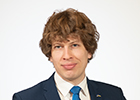
Tanel Kiik
Profiileerimine Fraktsiooni mittekuuluvad Riigikogu liikmedAI kokkuvõte
Tanel Kiik küsib ettekandja käest, mis oleks esimesed sammud Riigikogu poolt Eesti inimeste liikuvuse edendamiseks rahva tervise hoidmise vaates.
Eesti Olümpiakomitee president Kersti Kaljulaid
AI kokkuvõte
Ta rõhutab, et kõige tähtsam on riigi rahastuse suurendamine ja treenerite palkade tõstmine, kuid algatuseks võiks kasutada eraraha ning tulevikus leida riigi ressursse noortespordi tippsporti viimiseks, samal ajal rõhutab spordiseaduse tõhusust ja bürokraatia vähendamist ning ühtse andmete esitamise süsteemi spordiklubidele pearaha saamiseks, vältimaks sotsiaalset lõhet ning spordiklubide maskeerumist spordikoolideks, ning tuleb pöörata tähelepanu andmekaitse küsimustele.
Aseesimees Arvo Aller
AI kokkuvõte
Aseesimees kutsub Urmas Kruuse kõnelema.

Urmas Kruuse
Profiileerimine Eesti Reformierakonna fraktsioonAI kokkuvõte
Kruuse rõhutas treenerite toetusmehhanismi arendamise olulisust, kuid tõi esile ebavõrdse rahastamissüsteemi kohalikes omavalitsustes, kus noorte tippspordi maksimaalne toetus sõltub olümpiakomitee liikmelisusest, mis ei ole kõigile kättesaadav.
Eesti Olümpiakomitee president Kersti Kaljulaid
AI kokkuvõte
Kersti Kaljulaid lubas laiendada Team Estonia kaasatust ja luua andmepõhine noortesporti analüüs, sarnaselt Norra Olympiatoppale, et tippsporditoetuste otsused põhineksid andmetel ning omavalitsused noortesporti jätkuvalt toestaksid kuni süsteem on välja töötatud.

Urve Tiidus
Profiileerimine Eesti Reformierakonna fraktsioonAI kokkuvõte
Urve Tiidus küsib olümpiakomitee presidendilt, millised on kolm sammu, mis aitaksid sporti kasutades rahva tervist parandada, ning kas pered ja koolid on selle eesmärgi elluviimisel kaasatud, mitte ainult infrastruktuuri arendamisel.
Aseesimees Arvo Aller
AI kokkuvõte
Aseesimees Arvo Aller palub Urve Tiidus esinema.
Eesti Olümpiakomitee president Kersti Kaljulaid
AI kokkuvõte
Kersti Kaljulaid tõdes, et Eestis on palju sporditaristut, mida tuleb remontida ja hooldada, ning liikumise edendamiseks tuleb suurendada toetamist — kogukonnatreenerite rahastamist, lasteaedade liikumisõpetust, vanemaealiste liikumise laiendamist ning koolides viis liikumistundi nädalas — ning luua laiapõhjaline ennetav tervishoid, kus riik saab pakkuda soodustusi ja maksumuudatusi, et viie aasta jooksul liiguks kaks kolmandikku täiskasvanutest, mitte ainult alla kümne protsendi.
Aseesimees Arvo Aller
AI kokkuvõte
See oli lühike palve kutsuda lavale Jüri Jaanson.
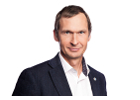
Jüri Jaanson
Profiileerimine Eesti Reformierakonna fraktsioonAI kokkuvõte
Jüri Jaanson ütles, et rahvuslik hädaolukord on sündimus, rõhutas liikumise ja spordi olulisust ning et laste liikumine peab algama peredest, kuid küsis samas, kas Eestis liikumine on turvaline, viidates liiklus- ja veeteede ohtudele.
Eesti Olümpiakomitee president Kersti Kaljulaid
AI kokkuvõte
Kersti Kaljulaid rõhutas, et Eesti Olümpiakomitee on koostanud strateegia turvalisuse parandamiseks ja inimeste liikumise suurendamiseks, mille eesmärk on kaasata maakonna spordiliidud, alaliidud ja kohalikke omavalitsusi noorte aktiviseerimiseks, kultuuriministeeriumi muudatuse toel lastespordi mitmekesisemaks ning treeneritele võimaluse anda teise eriala tund, kuigi see ei ole nende põhiline töö, kuid nad on valmis koostööprojektide korral kaasa aitama.
Aseesimees Arvo Aller
AI kokkuvõte
Aseesimees Arvo Aller pöörab Igor Taro poole ja palub teda.
Igor Taro
AI kokkuvõte
Igor Taro märgib, et Kagu-Eesti pakub head elukeskkonda ning isegi väikesed maakoolid suudavad pakkuda head põhiharidust, kuid huvitegevuse ja spordivõimaluste vähesus tekitab ebavõrdsust suuremate linnadega ning ta küsib, kas sellest ebavõrdsusest on võimalik välja tulla.
Eesti Olümpiakomitee president Kersti Kaljulaid
AI kokkuvõte
Kokkuvõte: spordivõimaluste laiem kättesaadavus tuleb saavutada koolide juurde toodud sporditegevuse ja treenerite kaasamise kaudu, mida EOK on maakondades koolides katsetanud programmi "Sport kooli", ning mõju hindamine otsustab, kas ja kuidas seda laiendada riigi ja haridusministeeriumi tasandil.
Aseesimees Arvo Aller
AI kokkuvõte
Aseesimees Arvo Aller palub Helmen Kütt võtta sõna.
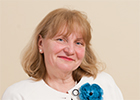
Helmen Kütt
Profiileerimine Sotsiaaldemokraatliku Erakonna fraktsioonAI kokkuvõte
Helmen Kütt rõhutab, et esmatähtis on panna lapsed liikuma ja arendada nii vaimset kui füüsilist võimekust ning erivajadustega lapsed ei tohi jääda liikumis- või võimlemistunnist vabastatuks, vaid tuleb mõelda esimesed sammud—kas treenerite koolitus või muu—ning tagada, et igaüks saab osaleda.
Eesti Olümpiakomitee president Kersti Kaljulaid
AI kokkuvõte
Ettekande peamine sõnum on, et sport on rahvatervise kasutamata võimalus ning iga laps peab saama liikuda, Paralümpiakomitee teeb head tööd ja koostöös riigiga tuleb luua koht, kust liikumispuudega laps saaks taotleda talle sobivat erivahendit kooli- ja spordivajaduste jaoks.

Margit Sutrop
Profiileerimine Eesti Reformierakonna fraktsioonAI kokkuvõte
Margit Sutrop väljendas nõusolekut paljude murekohtadega ning esitas küsimused ülikoolide rolli kohta spordis—sealhulgas Tartu Ülikooli Liikumislabori programmi „Liikuma kutsuv kool“ mõju koolide liikumisharjumustele, koostöö ning laiem roll sporditeaduses, treenerite ettevalmistuses, tippsportlaste toetamises ja spordieetika õpetamises ning teadvustamises.
Aseesimees Arvo Aller
AI kokkuvõte
Aseesimees Arvo Aller kutsub Margit Sutropi sõna võtma.
Eesti Olümpiakomitee president Kersti Kaljulaid
AI kokkuvõte
Kersti Kaljulaid rõhutas, et Eesti spordi ja teaduse koostöö peab liikuma rohujuure tasandile, et noorte talentide andmepõhine hindamine ning spordieetika ja Pedagogicumi kaasamine toimuksid, ning sportlastele pakutaks paindlikku ülikoolipääsu ja kõigile võimalus omandada EKR 5 kutse.
Aseesimees Arvo Aller
AI kokkuvõte
Aseesimees Arvo Aller tänas ettekande eest ja küsimustele vastamise eest ning teatas, et küsimuste aeg on läbi.
Eesti Olümpiakomitee president Kersti Kaljulaid
AI kokkuvõte
Kersti Kaljulaid tänab kõiki veel kord ja publik reageerib aplausiga.
Aseesimees Arvo Aller
AI kokkuvõte
Järgmiseks kõneleja on Eesti 200 fraktsiooni liige Tanel Tein.
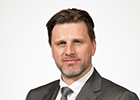
Tanel Tein
Profiileerimine Fraktsiooni mittekuuluvad Riigikogu liikmedAI kokkuvõte
Rääkides Eesti spordi tulevikust, rõhutab Tanel Tein, et sport peab saama riiklikult tähtsaks küsimuseks ning keskenduma laste liikumise parandamisele, koolide spordihariduse arendamisele ning erasektori kaasamisele ja innovatiivsetele rahastusviisidele, et Eesti tulevikus oleks tervem ja nähtavam spordikultuur.
Aseesimees Arvo Aller
AI kokkuvõte
Ettekande eest tänatakse, kutsutakse publikut esitama küsimusi ning Marek Reinaas palutakse tulla.

Marek Reinaas
Profiileerimine Fraktsiooni mittekuuluvad Riigikogu liikmedAI kokkuvõte
Marek Reinaas ütleb, et kui halamine oleks sport, koguks Eesti ilmselt medaleid, rõhutab varajase spordi rolli ning küsib Tanelilt väga konkreetseid ettepanekuid, kuidas suurendada laste osalemist nii spordis kui huvitegevuses.

Tanel Tein
Profiileerimine Fraktsiooni mittekuuluvad Riigikogu liikmedAI kokkuvõte
Ta rõhutab, et laste spordihariduse edendamiseks tuleb õpetada vanematele, kasutada koolide ja spordiklubide koostööd paralleelgruppide loomiseks ning tagada riigi ja erasektori rahastus, et sport jõuaks kõigile kättesaadavalt ja ei muutuks pelgalt võistlusspordiks.
Aseesimees Arvo Aller
AI kokkuvõte
Aseesimees Arvo Aller palub Urmas Kruuse võtta sõna.

Urmas Kruuse
Profiileerimine Eesti Reformierakonna fraktsioonAI kokkuvõte
Urmas Kruuse ütles, et liikumine koolis peaks olema igapäevane, kuid seda nullivad autoga kooli tulek ja 40 minuti liikumise piiramine; lahendus on sama lihtne kui matemaatikas – kodune pingutus, mille jaoks ei ole vaja palju raha, sest tervise ja kaitseväe eesmärgid erinevad.

Tanel Tein
Profiileerimine Fraktsiooni mittekuuluvad Riigikogu liikmedAI kokkuvõte
Ta rõhutas, et kodust tuleb alustada õpiharjumuse ja liikumisharjumuse kujundamisega ning keskenduda kümneaastasele perioodile, et lapsed saaksid iseseisvalt hakkama ja riik säästaks tulevikus, sarnaselt koolile ja sõjaväele, ning lõuatõmbamine on kasulik, eriti alaseljale.
Aseesimees Arvo Aller
AI kokkuvõte
Aseesimees Arvo Aller kutsub Toomas Uibo kõnelema.

Toomas Uibo
Profiileerimine Eesti 200 fraktsioonAI kokkuvõte
Toomas Uibo rõhutas, et sport ja majandus käivad käsikäes, palus täpsemat tausta selle kohta, kuidas laste liikumise suurendamine võiks majandust positiivselt mõjutada, ning arutles samal ajal väikese riigi jaoks prioriteetsete spordialade üle.

Tanel Tein
Profiileerimine Fraktsiooni mittekuuluvad Riigikogu liikmedAI kokkuvõte
Ta tõi välja, et koostöös Reformierakonnaga loodud töörühm otsib erasektorit kaasava rahastuse potentsiaali laste liikumise jaoks ja näitab, et hilisemas eas tööl käivate hulga suurendamine annaks riigile märkimisväärset majanduslikku kasu, nt 7 miljonit lisamaksutulu aastas, mis aitab väikeriigina seada fookuse laiemale ja kõigile kättesaadavale rahastusele.
Aseesimees Arvo Aller
AI kokkuvõte
Aseesimees Arvo Aller kutsub Igor Taro esinema.
Igor Taro
AI kokkuvõte
Kõne käsitleb huvihariduse ja huvitegevuse potentsiaali maailma päästmiseks ning arutleb, kuidas seda teha ühtlaselt Kagu-Eestis, Põlvas, Võrus, Räpinas, Valgas ja mujal maapiirkondades.

Tanel Tein
Profiileerimine Fraktsiooni mittekuuluvad Riigikogu liikmedAI kokkuvõte
Riik peaks investeerima huviharidusse ja huvitegevustesse, kuna see on väga tõhus ennetus tuleviku jaoks ning uuringud näitavad, et iga euro investeeringu korral saab tagasi 1,7 eurot ning haiguste ennetamisel on mõju 46-kordne.
Aseesimees Arvo Aller
AI kokkuvõte
Aseesimees Arvo Aller ütles, et täpsustada ei saa ja vastata ei tohi.

Tanel Tein
Profiileerimine Fraktsiooni mittekuuluvad Riigikogu liikmedAI kokkuvõte
Tein ütles, et eraraha kaasamine annaks maapiirkondadele lisaväärtust ning võimaldaks pakkuda erinevaid spordialasid sõltuvalt kohalike ettevõtete huvidest, kuid tuleb arvestada, et suuremad linnad võivad sel teekonnal eeliseid saavutada.
Aseesimees Arvo Aller
AI kokkuvõte
Arvo Alleri ütles, et küsimust saab küll täpsustada, kuid järgmise küsimuse esitamisel palus Ando Kiviberg.
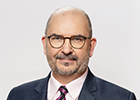
Ando Kiviberg
Profiileerimine Fraktsiooni mittekuuluvad Riigikogu liikmedAI kokkuvõte
Ando Kiviberg tänab juhatajaid ja ettekandjaid, märgib, et olümpiamängude võitjad kipuvad enamasti tulema maapiirkondadest tänu vähematele ahvatlustele ja suuremale treeningule, ning küsib lõpuks, mida ta täpsemalt mõtles, kui ütles, et spordi arengut tuleks säästa poliitilistest tõmbetuultest.

Tanel Tein
Profiileerimine Fraktsiooni mittekuuluvad Riigikogu liikmedAI kokkuvõte
Sporditeema ei ole poliitikutele kerge; Eesti 200 soovib luua pikaajalise eraraha kaasamise süsteemi, mis jätaks spordiklubide tuleviku nende enda kätte ning vähendaks poliitiliste tõmbetuulte mõju.
Aseesimees Arvo Aller
AI kokkuvõte
Aseesimees Arvo Aller kutsub Vadim Belobrovtsevi kõnelema.

Vadim Belobrovtsev
Profiileerimine Eesti Keskerakonna fraktsioonAI kokkuvõte
Ettekanne oli asjalik ning ideed head, kuid tekib küsimus, kas kaks koalitsioonipartnerit ja erasektor on valmis sellele kaasa tulema ning kas riigil on selleks raha, viidates varasematele kärbetetele ja Kristina Kallas'i kommentaarile toidukäibemaksu langusest.

Tanel Tein
Profiileerimine Fraktsiooni mittekuuluvad Riigikogu liikmedAI kokkuvõte
Riik ei saa kõike ise katta, seepärast on plaan küsida Eesti ettevõtjatelt kahe kolmandiku ulatuses ning usaldada andmeid, kuna erasektor on valmis 40% rohkem panustama; kahe töögrupi partneritega jõuame positiivse otsuseni, mis vajab poliitilist otsust, ning opositsioon on kaasas.
Aseesimees Arvo Aller
AI kokkuvõte
Aseesimees Arvo Aller kutsub Kalev Stoicescut esinema.

Kalev Stoicescu
Profiileerimine Fraktsiooni mittekuuluvad Riigikogu liikmedAI kokkuvõte
Kalev Stoicescu tänab juhatajat ja Taneli huvitava, tänuväärse diskussiooni eest, loodab selle kaudu anda valdkonnale positiivse tõuke ning rõhutab, et riigina tuleb ühiselt mõtestada ühiskondlikku kokkulepet ja spordivajadusi, paludes selle kohta täpsustust.

Tanel Tein
Profiileerimine Fraktsiooni mittekuuluvad Riigikogu liikmedAI kokkuvõte
Tanel Tein rõhutab, et ühiskond peab leidma ühiskondliku kokkuleppe selle üle, miks sport on vajalik riigikaitse ja tervishoiu seisukohast ning miks tuleb selle väärtused tõestada numbritega, et spordile oleks rohkem toetus.
Aseesimees Arvo Aller
AI kokkuvõte
Aseesimees Arvo Aller tänas ettekandjat ja küsimuste esitajad ning teatas, et küsimuste ja vastuste aeg on läbi, ning suunas tähelepanu järgmisele ettekandjale Uku Varblane.
Arenguseire Keskuse uuringute juht Uku Varblane
AI kokkuvõte
Uku Varblase sõnul on Eesti spordi erarahastuse potentsiaal suur, kuid selle realiseerimiseks on vaja kasvatada annetuste kultuuri, riigi võimendust ning kasutada kaughasartmängumaksu lisaraha spordile ja kultuurile, mis toob majanduslikku ja sotsiaalset kasu ning tugevdab kogukondade heaolu.
Aseesimees Arvo Aller
AI kokkuvõte
Ta tänab sisuka ettekande eest, märgib, et küsimused on oodatud, ning kutsub Urmas Kruuse esinema.

Urmas Kruuse
Profiileerimine Eesti Reformierakonna fraktsioonAI kokkuvõte
Urmas Kruuse esitas kaks küsimust slaidide põhjal: kas ettevõtjate annetused sünnivad peamiselt missioonitundest ja kas maksusoodustuste kasutamata jätmine toob oodatud kasu, või kas riik on loobunud ühest miljardist, et ettevõtted saaksid selle asemel juurde kaks miljardit panna.
Arenguseire Keskuse uuringute juht Uku Varblane
AI kokkuvõte
Uku Varblane ütles, et küsitluse põhjal motiveerib ettevõtteid annetama missioonitunne ning spordi ja kultuuri säilimise toetus Eestis; kuigi sponsorlusel on sageli tugev äriline eesmärk, võivad need kaks tulevikus paremini põimuda, ning kuigi miljardiline potentsiaal on teoreetiline, on meil ambitsioon ja võimalused annetusi kasvatada.
Aseesimees Arvo Aller
AI kokkuvõte
Aseesimees Arvo Aller kutsub Jüri Jaansoni esinema.

Jüri Jaanson
Profiileerimine Eesti Reformierakonna fraktsioonAI kokkuvõte
Ta tõdes, et hasartmängumaksust laekuv summa on optimistlik ning tulevikus võiks sellega spordiehitusi rahastada, ning küsis, kas eraraha kaasamine suudaks lahendada noorte spordist väljalangemise probleemi pärast 13. eluaastat.
Arenguseire Keskuse uuringute juht Uku Varblane
AI kokkuvõte
Uku Varblane märgib, et erarahaga motiveerimispaketi arendamine võib tuua rohkem treenereid spordivaldkonda, suurendada tähelepanu ning aidata noortel spordis jätkamisel keerulisel ajal.
Aseesimees Arvo Aller
AI kokkuvõte
Aseesimees Arvo Aller kutsus Igor Taro kõnelema.
Igor Taro
AI kokkuvõte
Kagu-Eesti ettevõtted panustavad sporti suuremahulise sponsorlusega ning kipuvad eelistama edukaid meeskondi, mistõttu tekib küsimus, millised faktorid aitaksid tasakaalustada toetus ja tagada, et abi jõuaks ka neile, kes seda enim vajavad.
Arenguseire Keskuse uuringute juht Uku Varblane
AI kokkuvõte
Kohaliku ettevõtluse ja kogukonna tihedam seostamine ning riigipoolse võimenduse skeemi kasutuselevõtt võiks suunata rohkem raha kohalikele kogukondadele, sealhulgas spordiühingutele ja sportlastele.
Aseesimees Arvo Aller
AI kokkuvõte
Aseesimees Arvo Aller pöördub Vadim Belobrovtsevi poole palvega.

Vadim Belobrovtsev
Profiileerimine Eesti Keskerakonna fraktsioonAI kokkuvõte
Ettekandja ütles, et erasektor on sponsorlust viimastel aastatel vähendanud peamiselt majanduslike põhjuste tõttu ja kuigi majanduse kasv võiks ettevõtetel sporti rohkem toetamist soosida, küsis ta, millised teised faktorid võiksid erasektorit veel spordile suuremal määral panustama ergutada, ning et valitsuse tegevus ei tee olukorda paremaks.
Arenguseire Keskuse uuringute juht Uku Varblane
AI kokkuvõte
Ta toob välja kaks peamist motivaatorit: ettevõtted soovivad, et nende toetus ja sponsorlus jääks meelde ning et nad näeksid selget mõju ning saaksid seda mõju ka selgelt väljendada.
Aseesimees Arvo Aller
AI kokkuvõte
Aseesimees Arvo Aller palub Tanel Teinil tulla lavale.

Tanel Tein
Profiileerimine Fraktsiooni mittekuuluvad Riigikogu liikmedAI kokkuvõte
Tein viitas Urmas Kruuse küsimusele sporti toetamise perspektiivi ja potentsiaali ning tõi välja, et tõenäoliselt ettevõtted ei hakka oma kasumist 10% sporti toetamist, ning palus täpsustada, kui suur on praegu ettevõtjate toetus ja millised numbrid selle arenguseire mudelis kokku tulevad, rõhutades, et täna on toetajaid umbes 0,5% ja kalkulaator eeldas 3%-olist osakaalu.
Arenguseire Keskuse uuringute juht Uku Varblane
AI kokkuvõte
Uku Varblane ütles, et praeguse hinnangu järgi annetab spordivaldkonda aktiivsemalt umbes 0,5% ettevõtetest, kuid riigi võimenduse stsenaariumi korral võiks see osakaal alates 3% suureneda ning maksimaalselt jõuda umbes 6%-ni, mille tulemused põhinevad küsitluste andmetel ja mida saab erinevate eelduste ja stsenaariumitega läbi mängida.
Aseesimees Arvo Aller
AI kokkuvõte
Aseesimees Arvo Aller palub Vadim Belobrovtsevi tulla esinema.

Vadim Belobrovtsev
Profiileerimine Eesti Keskerakonna fraktsioonAI kokkuvõte
Ta küsis Taneli plaani valguses, kui palju ettevõtjaid on valmis sporti rohkem toetamama, kui riik või kohalik omavalitsus on valmis selleks rohkem panustama.
Arenguseire Keskuse uuringute juht Uku Varblane
AI kokkuvõte
Arenguseire Keskuse uuringu põhjal on 37% juba spordi toetanud ettevõtetest valmis suurendama annetuste mahtu, 39% neist, kes varem ei toetanud, kaaluksid spordi toetamist ja 1% sooviks kohe alustada, kuid valim võib olla piirav ning potentsiaal on suur.
Aseesimees Arvo Aller
AI kokkuvõte
Kõne alguses paluti lavale Jüri Jaanson.

Jüri Jaanson
Profiileerimine Eesti Reformierakonna fraktsioonAI kokkuvõte
Ta küsib, kas ettevõtete teadlikkuse ja annetuskultuuri kasv tooks kaasa annetuste kasvu peamiselt spordile või laieneksid need teistesse valdkondadesse ning kas spordi roll üldse suureneks.
Arenguseire Keskuse uuringute juht Uku Varblane
AI kokkuvõte
Uku Varblane ütles, et kõige rohkem annetusi kaasavad tervisega seotud MTÜ-d ja sihtasutused ning kuigi konkreetseid andmeid puudub, võib eeldada, et kasvav annetuste tase tõstab rahastust kõigis valdkondades proportsionaalselt, mida illustreeritakse Skandinaavia võrdlustega.
Aseesimees Arvo Aller
AI kokkuvõte
Aseesimees Arvo Aller esitas lühikese palve: “Tanel Tein, palun!”

Tanel Tein
Profiileerimine Fraktsiooni mittekuuluvad Riigikogu liikmedAI kokkuvõte
Ta küsib, kas Eesti spordivaldkonda suunatava raha osakaalu kohta kogutud andmed ja nende kogumismeetodid on teiste riikidega võrreldavad ning kas Eesti tõepoolest paikneb tipu lähedal.
Arenguseire Keskuse uuringute juht Uku Varblane
AI kokkuvõte
Eurostat kogub andmeid ja püüab tagada metoodilise ühtsuse, kuid riikide erinevad andmekogumise ja taristu haldamise praktikad teevad võrdluse praktikas mitte päris täpseks.
Aseesimees Arvo Aller
AI kokkuvõte
Aseesimees Arvo Aller tänas ning teavitas, et küsimusi enam ei ole, ning suunas järgmise ettekandja juurde – haridus- ja teadusminister Kristina Kallasele.
Haridus- ja teadusminister Kristina Kallas
AI kokkuvõte
Haridus- ja teadusminister Kristina Kallas ütles, et Eesti peab suurendama laste liikumist, laiendama harrastusrühmi ja liikumisharrastuse treeneri kutse ning lisama spordi- ja kultuuriharidust, et tuua riiki suurüritusi ning kasvatada tervist, rahvuslikku uhkust ja majandust.
Esimees Lauri Hussar
AI kokkuvõte
Esimees Lauri Hussar tänab ministeri, teatab, et küsimusteks ja vastusteks on kokku 20 minutit, ning esimesena küsib kolleeg Igor Taro.
Igor Taro
AI kokkuvõte
Igor Taro küsib, kas väide, et huviharidus päästab maailma, on piisav ja rõhutab, et ka maapiirkondade päästmiseks tuleb teha teine pool, ning küsib, kuidas see võiks tegelikkuses teoks saada.
Haridus- ja teadusminister Kristina Kallas
AI kokkuvõte
Huviharidus ei päästa maailma üksi, kuid mängib Eesti laste arengus, enesekindluse ja vaimse tervise kujunemises ning oskuste arendamises olulist rolli ning kuigi rahastus on märkimisväärne, tuleb liikumise ja sporditegevuste võimalusi veelgi suurendada, eriti maapiirkondades.
Esimees Lauri Hussar
AI kokkuvõte
Esimees Lauri Hussar palub Urmas Kruusele sõna võtta.

Urmas Kruuse
Profiileerimine Eesti Reformierakonna fraktsioonAI kokkuvõte
Urmas Kruuse arutleb koolidevaheliste võistluste üle ning küsib, kas klasside kaupa osalemine ja kõige rohkem osaleva klassi võitmine või tulemuste summeerimine võiksid innustada lapsi rohkem sportima.
Haridus- ja teadusminister Kristina Kallas
AI kokkuvõte
Kristina Kallas toob Norrast näite, kus kuni 13-aastani ei korraldata võistlusi ja rõhutatakse osalemist ning isiklikku arengut, ning arutleb, kas Eestis peaks võtma selle põhimõtte eeskujuks ja laiendama talentide avastamist või jätkama praegust võistluslikku süsteemi.

Jüri Jaanson
Profiileerimine Eesti Reformierakonna fraktsioonAI kokkuvõte
Jüri Jaanson tõi välja, et peamine küsimus on, kuidas panna lapsed liikuma, ning miks pärast 13. eluaastat langeb suur osa spordis osalevatest lastest välja, ning küsis, kas haridussüsteem peaks selle lahenduse looma sisemiselt või keskenduma huviharidusele väljapoole haridust.
Esimees Lauri Hussar
AI kokkuvõte
Esimees Lauri Hussar kutsus Jüri Jaansoni lavale.
Haridus- ja teadusminister Kristina Kallas
AI kokkuvõte
Kristina Kallas rõhutab, et varases teismeeas tuleb hoida lapsi spordi juures, võimaldades koolis sporditegemise arvestamist mitteformaalse haridusena ning kasutada vabaaineid spordi jaoks, vajadusel asendades kuuendast klassist alates tulevad uued ained spordi- või kultuurilise huvitegevusega.
Esimees Lauri Hussar
AI kokkuvõte
Esimees kutsub Vadim Belobrovtsevi ette.

Vadim Belobrovtsev
Profiileerimine Eesti Keskerakonna fraktsioonAI kokkuvõte
Vadim Belobrovtsev märkis, et viimase kahe aasta jooksul pole valitsus teinud suuri otsuseid spordivaldkonnas ning kuigi on töös spordiseaduse muutmise eelnõu, mis sisaldab mõningaid positiivseid, kuid pigem väikeseid parandusi, küsis ta, mis tuleb teha, et riik teeks suuremaid samme, näiteks koostada kultuuriga sarnaselt nimekiri spordiobjektidest, mida rohkem toetamа ja suuremaid spordiüritusi ning võistlusi rahastada, ning millal sellised sammud võiksid tulla.
Haridus- ja teadusminister Kristina Kallas
AI kokkuvõte
Kristina Kallas ütles, et kiire lahendus spordi rahastamisel puudub ja tuleb teha pikaajalisi samme: avada uued õppekavad (ka kutsehariduses), lisada liikumisõpetus kehalise kasvatuse asemele, välja töötada treeneri ja abitreeneri kutse ning keskharidusega, uurida spordiobjektide rahastusskeemi ning suursündmuste toetus nähakse investeeringuna, mida valitsus kaalub augusti eelarvealaste läbirääkimiste raames.
Esimees Lauri Hussar
AI kokkuvõte
Esimees Lauri Hussar palub Vladimir Arhipovi tulla ette.

Vladimir Arhipov
Profiileerimine Fraktsiooni mittekuuluvad Riigikogu liikmedAI kokkuvõte
Vladimir Arhipov tänab juhatajat ja ministeri ning rõhutab, et spordirajatiste rahastamise skeem on olemas, ning tänu Keskerakonna initsiatiivile ja riiklikule rahastusele on valminud kaasaegsed jalgpallihallid Tartus, Pärnus, Raplas, Haapsalus, Narvas, Viljandis ja Paides ning ehitamisel Rakveres ja Viimsis, ning kutsub jätkama ja laiendama programmi mitte ainult jalgpallile, vaid ka uisuväljakutele ja jäähallidele, sest iluuisutajad ja hokimehed on näidanud häid tulemusi, ning omavalitsustele peaks see meede kättesaadavaks muutuma.
Esimees Lauri Hussar
AI kokkuvõte
Esimees Lauri Hussar ütleb, et nüüd on teie aeg.

Vladimir Arhipov
Profiileerimine Fraktsiooni mittekuuluvad Riigikogu liikmedAI kokkuvõte
Vladimir Arhipov ütles, et uisuväljak maksab umbes 600 000–700 000 eurot ning küsis, kas meetmega toetataks jäähallide ehitust või jalgpallihallide jätkuvat ehitamist.
Haridus- ja teadusminister Kristina Kallas
AI kokkuvõte
Haridus- ja teadusminister Kristina Kallas ütles, et kuigi sporditaristu arendamine on oluline, ei anna raha juurdepanek iseenesest medaleid ega suurenda laste liikumist; oluline on treenerite koolitamine ja uute kutsete loomine ning investeeringud kolme suure spordirajatisse – olümpiaujulasse, multifunktsionaalsesse halli ja velotreksi – et Eesti spordisüsteem toimima hakkaks.
Esimees Lauri Hussar
AI kokkuvõte
Esimees Lauri Hussar kutsub Marek Reinaasi.

Marek Reinaas
Profiileerimine Fraktsiooni mittekuuluvad Riigikogu liikmedAI kokkuvõte
Marek Reinaas küsib Kristina käest, kas haridusministeeriumil on võimekus ja tahe aidata vähendada liikuvus- ja spordilõhet ning tagada lastel võrdne ligipääs liikuvusele.
Haridus- ja teadusminister Kristina Kallas
AI kokkuvõte
Kristina Kallas rõhutas, et liikuvust spordis piiravad taristu puudulikkus ja vanemate raha ning et kooli spordikavade laienemine aitaks osaleda ka neil, kellel ei ole võimalik klubide kaudu sporti jätkata.
Esimees Lauri Hussar
AI kokkuvõte
Esimees Hussar palub Kristina Šmigun-Vähi.
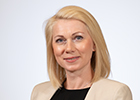
Kristina Šmigun-Vähi
Profiileerimine Eesti Reformierakonna fraktsioonAI kokkuvõte
Kristina Šmigun-Vähi palub haridus- ja teadusministeeriumil seada prioriteediks koolide igapäevase liikumise tagamise ja liikumisõpetuse tugevdamise, sest kahe tunni liikumise nädalas ei taga laste füüsilist ega vaimset tervist.
Haridus- ja teadusminister Kristina Kallas
AI kokkuvõte
Kristina Kallas ütles, et liikumisõpetuse tundide arvu suurendamine ei tohi toimuda teiste õppeainete arvelt, ning koolidele tuleb kehtestada 30-minutiline õuevaheaeg keset päeva ja lasta lastel koolipäeva jooksul õue minna, samuti eraldab riik kohalikele omavalitsustele umbes 3 miljonit eurot liikumisõpetuse vahendite ostmiseks ning soovib spordierialasid kaasata 30% ulatuses vabaainevalikusse, et suurendada liikumisõpetajate arvu ja koolide liikumisse kaasatust.
Esimees Lauri Hussar
AI kokkuvõte
Esimees Lauri Hussar tänab ja teatab, et võetakse veel üks kiire küsimuste-vastuste voor ning kutsub Urmas Kruuse vastama.

Urmas Kruuse
Profiileerimine Eesti Reformierakonna fraktsioonAI kokkuvõte
Urmas Kruuse arvates ei peaks koolipäevi pikemaks venitama; parem on lisada iga päev üks meeskondlik liikumise tund, mis annaks vaimsele tervisele ja võimekusele kordades rohkem kui õppeaja pikenemine.
Haridus- ja teadusminister Kristina Kallas
AI kokkuvõte
Haridus- ja teadusminister Kristina Kallas rõhutas, et vaimse tervise probleemide lahendamiseks ei ole küsimus ainult diagnooside ja ravimite väljakirjutamises, vaid kooli päevakava muutmises, kus lastel on hommikul võimalus ringi joosta ning keset päeva 30–60-minutilised pausid füüsilisele aktiivsusele ja väljas olemisele.
Esimees Lauri Hussar
AI kokkuvõte
Esimees Lauri Hussar palub Riigikogul pikendada tänast istungit päevakorrapunkti ammendumiseni, kui arutelu ei ole lõppenud kell 13‑ks, kuid mitte kauem kui kell 14‑ni, ning kutsub hääletusele selle pikendamise ettepaneku.
Esimees Lauri Hussar
AI kokkuvõte
Esimees Lauri Hussar teavitas, et ettepaneku poolt on 24 Riigikogu liiget ning vastuolijaid ja erapooletuid ei ole, istung on pikendatud ning järgnevad läbirääkimised, arutelu algataja soovil võivad sõnavõtud esineda Riigikogu liikmete ning komisjonide ja fraktsioonide esindajatena ning kõigepealt kõnelevad fraktsioonide esindajad, kelle seas palutakse Madis Kallase kõnelema Sotsiaaldemokraatliku Erakonna fraktsiooni nimel.
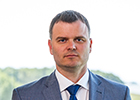
Madis Kallas
Profiileerimine Fraktsiooni mittekuuluvad Riigikogu liikmedAI kokkuvõte
Madis Kallas rõhutab sporti kui rahva ühtsuse ja tervise eestvedajat, ausa võistluse põhimõtete ning konkreetsete toimingute vajadust ning spordiseaduse raames astutavate sammude olulisust, väljendades kindlat vastuseisu Venemaa ja Valgevene sportlaste rahvusvahelisele areenile lubamisele ning vajadust plaanide ja ressurssidega toetada medalilootuseid.
Esimees Lauri Hussar
AI kokkuvõte
Esimees Lauri Hussar palub kolm minutit lisäaega.

Madis Kallas
Profiileerimine Fraktsiooni mittekuuluvad Riigikogu liikmedAI kokkuvõte
Madis Kallas ütles, et sporditaristu areng on viimase kahe kümnendi jooksul olnud väga positiivne ning et spordi rahastamine, huviharidus ja sporditöötaja profiili selgus on olulised, rõhutades, et kõigile lastele peab olema võimalus füüsiliselt väljendada ning Riigikogu peab jätkama konkreetsete lahenduste leidmist.
Esimees Lauri Hussar
AI kokkuvõte
Riigikogu kõnetooli kutsuti Reformierakonna fraktsiooni nimel Kristina Šmigun-Vähi ning talle paluti kolm minutit lisaaega.

Kristina Šmigun-Vähi
Profiileerimine Eesti Reformierakonna fraktsioonAI kokkuvõte
Kristina Šmigun-Vähi sõnum on, et Eesti elukvaliteedi ja tervise jaoks tuleb lapsepõlves luua tugev vundament koolide, vanemate ja riigi koostöö kaudu ning igal koolipäeval panna liikumine ja väljas olemine prioriteediks ning avada koolihoovid sportimiseks, et lapsed ja noored armastaksid sporti ning oleksid terved.
Esimees Lauri Hussar
AI kokkuvõte
Isamaa fraktsiooni nimel tänatakse heade soovide eest ja palutakse Riigikogu kõnetooli kolleeg Mart Maastiku kõnelema ning küsitakse kolm minutit lisaaega.

Mart Maastik
Profiileerimine Fraktsiooni mittekuuluvad Riigikogu liikmedAI kokkuvõte
Mart Maastik väitis, et koalitsiooni prioriteedid, sealhulgas energeetikaotsused ja perede toimetuleku kärped, ohustavad noorte liikumist ja spordi rahastamist ning ilma erasektori toel ning pikaajalise spordirahastuse tagamiseta ei tule me medaleid.
Esimees Lauri Hussar
AI kokkuvõte
Esimees Lauri Hussar tänas ja teatas, et keskfraktsiooni nimel soovib kolleeg Vadim Belobrovtsev pidada kõne ning palus Riigikogu kõnetoolist.

Vadim Belobrovtsev
Profiileerimine Eesti Keskerakonna fraktsioonAI kokkuvõte
Belobrovtsev rõhutab, et kehaline aktiivsus on Eesti üldise heaolu ja majanduse jaoks ülimalt oluline ning riik peab tugevalt suurendama investeeringuid spordi ja tervisesse, sest madal liikumine ning kehv tervis on suurimad riskid, mida tuleb vähendada konkreetsete otsuste ja jätkuva toega, viidates varasematele edusammudele ning sellele, et tänased projektid vajavad lõpuleviimist ja aega.
Esimees Lauri Hussar
AI kokkuvõte
Esimees Lauri Hussar palub anda kolm minutit lisaega.

Vadim Belobrovtsev
Profiileerimine Eesti Keskerakonna fraktsioonAI kokkuvõte
Vadim Belobrovtsev rõhutab, et Eesti sporditaristu seis on kehv ning on hädavajalik arendada suuri spordiobjekte (näiteks 10 000 pealtvaatajat mahutav hall), kaasata erasektor ja luua riigi tasandil spordiminister, kes kaitseks spordivaldkonda ning edendaks selle rahastust ja suurte ürituste korraldamist.
Esimees Lauri Hussar
AI kokkuvõte
EKRE fraktsiooni nimel palutakse Arvo Alleri Riigikogu kõnetooli kõnelema ning küsitakse kolm minutit lisaaega.

Arvo Aller
Profiileerimine Fraktsiooni mittekuuluvad Riigikogu liikmedAI kokkuvõte
Arvo Aller rõhutab, et laste ja noorte liikumise vähenemine ning koolide kehalise kasvatuse puudulikkus nõuavad suuremat spordi- ja noortelaagrite rahastust ning paremini toimivat treenerite tasemete süsteemi, et vanemad oleksid eeskujuks ning noored saaksid distsipliini ja tahet liikumiseks.
Esimees Lauri Hussar
AI kokkuvõte
Esimees tänab kolleegi ja Eesti 200 fraktsiooni nimel palub Kadri Tali Riigikogu kõnetooli.

Kadri Tali
Profiileerimine Fraktsiooni mittekuuluvad Riigikogu liikmedAI kokkuvõte
Kadri Tali sõnul on kultuuri ja spordi rahastamine eraraha kaasamise kaudu riigi tuleviku, majanduse ja kaitsevõime jaoks kriitilise tähtsusega ning see nõuab erakondadeülest koostööd, julgeid otsuseid ja pühendumist.
Esimees Lauri Hussar
AI kokkuvõte
Esimees Lauri Hussar palus kolm minutit lisäaega.

Kadri Tali
Profiileerimine Fraktsiooni mittekuuluvad Riigikogu liikmedAI kokkuvõte
Kadri Tali sõnavõtus rõhutatakse, et spordi- ja kultuurivaldkonnale võiks esimesel aastal anda lisaraha 10 miljonit ning tulevikus 50–100 miljonit aastas, ning nutika maksudisainiga võiks Eesti kultuuri- ja spordisektorist kujuneda majandusharu, mis kümne aasta jooksul toob 50 korda rohkem maksutulu ning võimaldab unistusi ellu viia ja riiki maailmakaardile tugevalt seada.
Esimees Lauri Hussar
AI kokkuvõte
Esimees tänas ja kuulutas läbirääkimised avatud kõigile Riigikogu liikmetele ning kutsus kolleeg Igor Taro kõnetooli.
Igor Taro
AI kokkuvõte
Igor Taro jagas isiklikku lugu spordiga armastamise kujunemisest läbi inspireeriva õpetaja mõju ja esitas jätkusuutliku rahastamisplaani, mille kohaselt spordi toetus võiks kasvada 2–3% SKP-st lisatulude kaudu, mitte intressikulude suurenemise teel.
Esimees Lauri Hussar
AI kokkuvõte
Esimees tänas kolleegi, meenutas, et Argo Käpa oli tema kehalise kasvatuse õpetaja, saatis talle tervitused Riigikogu saalist ja kutsus järgmisena kõnetooli Jüri Jaansoni.

Jüri Jaanson
Profiileerimine Eesti Reformierakonna fraktsioonAI kokkuvõte
Jüri Jaanson rõhutas, et spordis edu sõltub eneseületuse tahtest ning riik peaks sporti paremini toetama treenerite palgatoetuste ja riiklike spordiobjektide rahastuse kaudu ning koolisüsteemis liikumist rohkem integreerima, arutades samal ajal spordiministri loomise võimalust.
Esimees Lauri Hussar
AI kokkuvõte
Esimees Lauri Hussar palub saada kolm minutit lisäaega.

Jüri Jaanson
Profiileerimine Eesti Reformierakonna fraktsioonAI kokkuvõte
Jüri Jaanson rõhutab, et sportimise turvalisus ja liikumisvabadus peegeldavad Eesti ühiskonna turvalisust ning vajavad paremat riiklikku koostööd, vähem bürokraatiat ning lahendusi nii välialadel kui sisealadel, veesportide ja liikluse ohutuse tagamiseks, et kõigil oleks ohutu liikumine, sportlased saaksid eneseteostust ning riik toetaks nii medalid kui rahva tervise arengut.
Esimees Lauri Hussar
AI kokkuvõte
Esimees tänab kolleegi ja palub järgmisena Toomas Uibo kõnet pidama.

Toomas Uibo
Profiileerimine Eesti 200 fraktsioonAI kokkuvõte
Toomas Uibo rõhutas, et sport ja kultuur on majandusharud ning erasektor peab riigile usaldusväärse partnerina loota, sest ainult lubaduste järjepidev täitmine ja nutikad koostöövõimalused suudavad viia investeeringud ja ideed ellu.
Esimees Lauri Hussar
AI kokkuvõte
Esimees Lauri Hussar tänas kõiki osalejaid ja esinejaid ning kutsus esmaspäeva hommikul päikesetõusul Toompea lossi jalamile Eesti Vabariigi sünnipäeva pidulikule lipuheiskamisele ja avalöögile Pika Hermanni torni juurde.